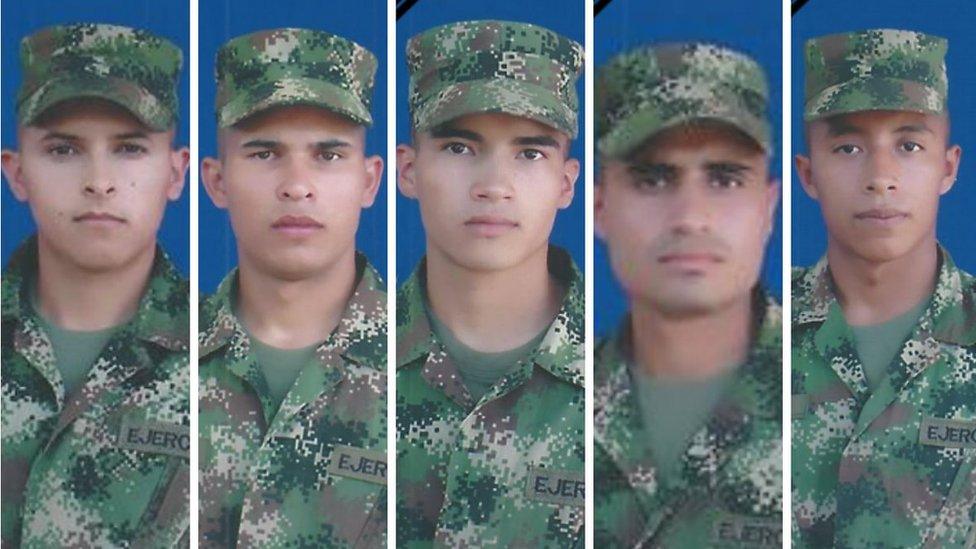Bogotá blast: Deadly car bomb kills 20 in Colombian capital
- Published
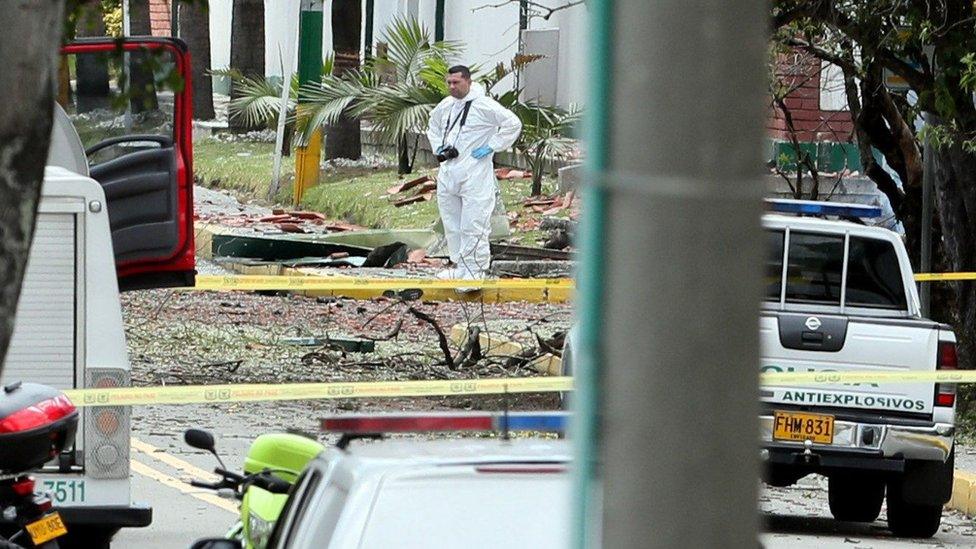
The explosion happened outside a school for police cadets
At least 20 people have been killed in a car bomb attack in the Colombian capital of Bogotá, police say.
Dozens more were injured in the blast which happened at 09:30 (14:30 GMT) on Thursday in the south of the city.
The car's driver, who was also killed, has been identified as a 57-year-old man. No group has said it was behind the explosion.
President Ivan Duque described it as a "crazy terrorist act" and declared three days of national mourning.
What do we know about the explosion?
The grey Nissan Patrol entered the compound of the General Santander police academy where a promotion ceremony for cadets was being held.
When the car was stopped by guards at a checkpoint, the driver accelerated and hit a wall, at which point the car exploded.

Allow X content?
This article contains content provided by X. We ask for your permission before anything is loaded, as they may be using cookies and other technologies. You may want to read X’s cookie policy, external and privacy policy, external before accepting. To view this content choose ‘accept and continue’.

The blast shattered windows of nearby apartments and houses. "[It was] horrible, horrible, it seemed like the end of the world," 62-year-old Rosalba Jimenez, who was opening her shop near the school, told AFP news agency.
At least 68 people were injured but the majority of those have since been discharged from hospital, officials say.
One of the victims was an Ecuadorian woman, Ecuador's President Lenín Moreno said.
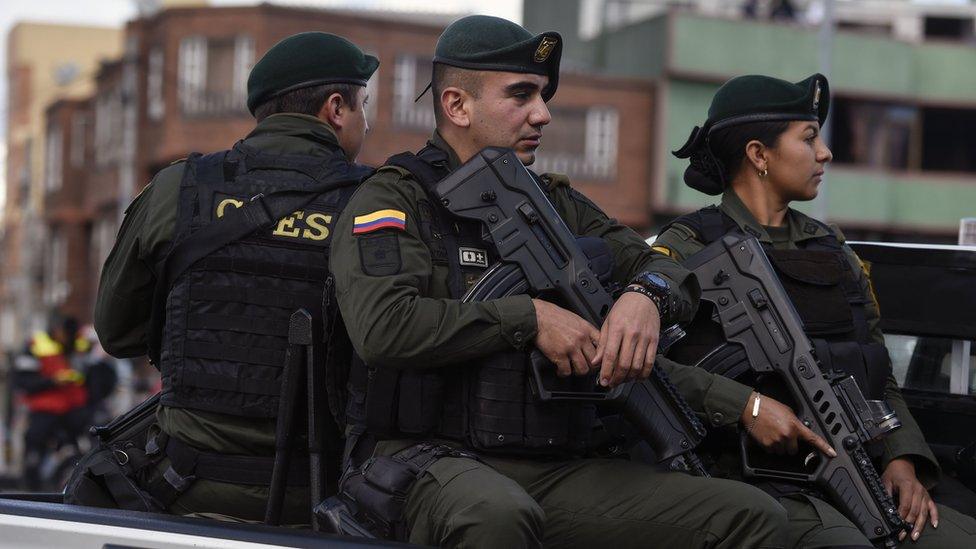
Security was tightened in the area after the explosion
The vehicle was carrying 80kg (176lb) of the powerful explosive pentolite, which has been used in the past by Colombia's rebel guerrilla groups, said Attorney General Néstor Humberto Martínez.
He named the driver as José Aldemar Rojas Rodríguez, who was killed in the blast.
The suspect had no criminal record, external and lived in the northern department of Boyacá, where the rebel group the National Liberation Army (ELN) is still present, Colombian newspaper El Tiempo reports (in Spanish).
But correspondents say there is no initial indication that ELN was behind the explosion or that the driver had any links to the group.

Commotion returns to Bogotá
Boris Miranda, BBC Mundo correspondent in Colombia
An explosion of a car bomb of this size is something that has not happened in a long time in Bogotá and so it took the Colombian capital by surprise.
This is all the more so because it happened at a police school, the kind of institution that suffered numerous attacks during the time of drug violence and the armed conflict with Farc and ELN rebels.
Colombian authorities and leaders condemned the "terrorist attack" and said they feared "a return of the bombs".
It should be noted that Colombia has significantly reduced bomb attacks and murders in recent years, but what has happened today shows that it is a continuing fear for citizens.

What has the reaction been?
Relatives of cadets being trained at the school gathered in front of the gates to find out more information.
President Duque, who was in the west of the country when the explosion happened, returned to the capital and visited the site.
"It's an attack on society," he said. "Colombians have never yielded to terrorism, we have always defeated it. This will not be an exception."
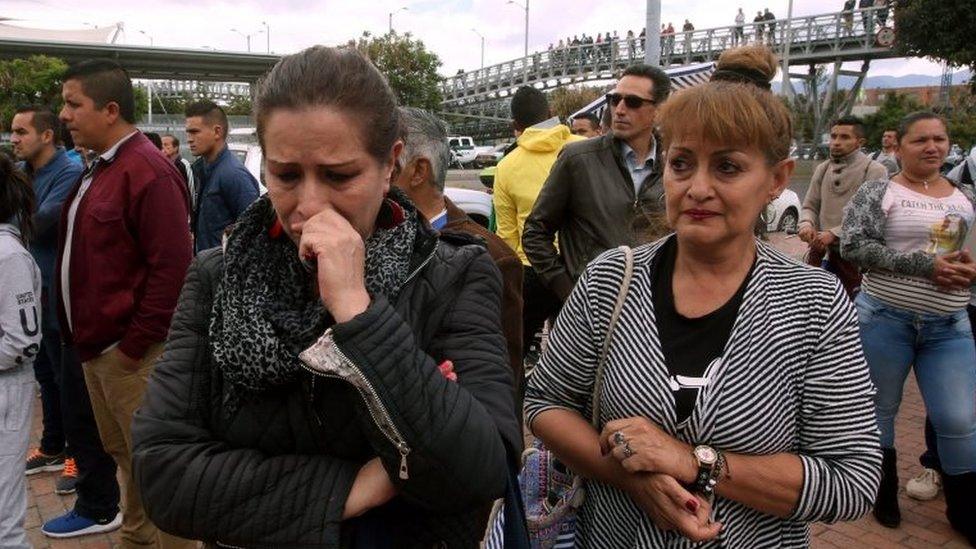
Relatives of cadets being trained at the school gathered in front of the gates
Authorities were now investigating who were the "intellectual authors" of the blast, Mr Martinez said.
Among those injured are two Panamanians and an Ecuadorean national.
The explosion was condemned by Colombian politicians, including former Presidents Juan Manuel Santos and Álvaro Uribe, and regional leaders.
What's the current situation in Colombia?
Car bombs were not uncommon during the decades-long conflict between the Colombian government and left-wing rebels of the Revolutionary Armed Forces of Colombia (Farc).
But local media say there has been no such blast in the past nine years.
The Farc signed a peace agreement with the government in November 2016 and the group has since become a political party of the same name. The party's leader, Pastor Alape, condemned the attack on Twitter, external.
He called it a "provocation against the political way out of the conflict". He also wrote that the attack was a ploy to ruin the chances of a peace agreement between the government and the smaller ELN.
Peace talks between the ELN and the previous government of Mr Santos stalled, and President Duque, who takes a more hardline approach to the group, has not resumed the talks.
- Published13 January 2019
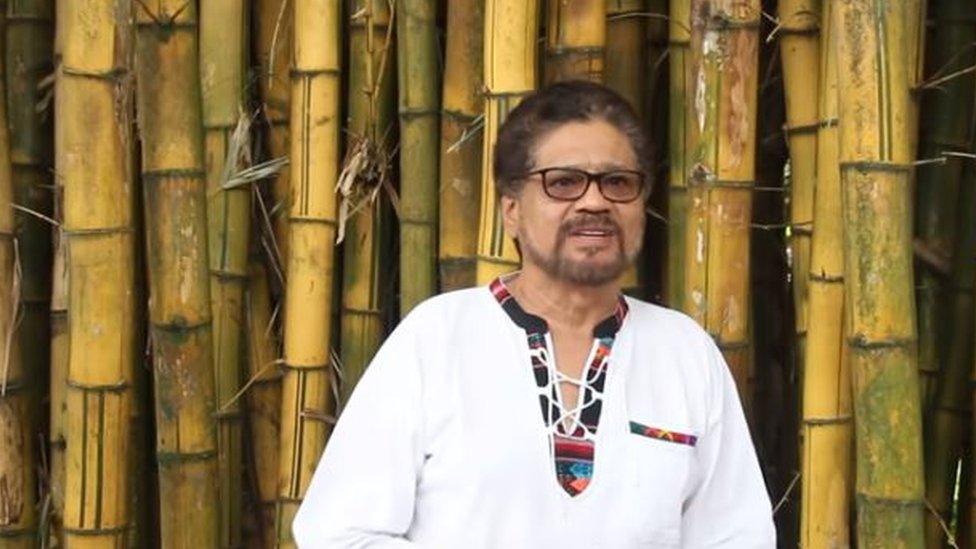
- Published1 January 2019
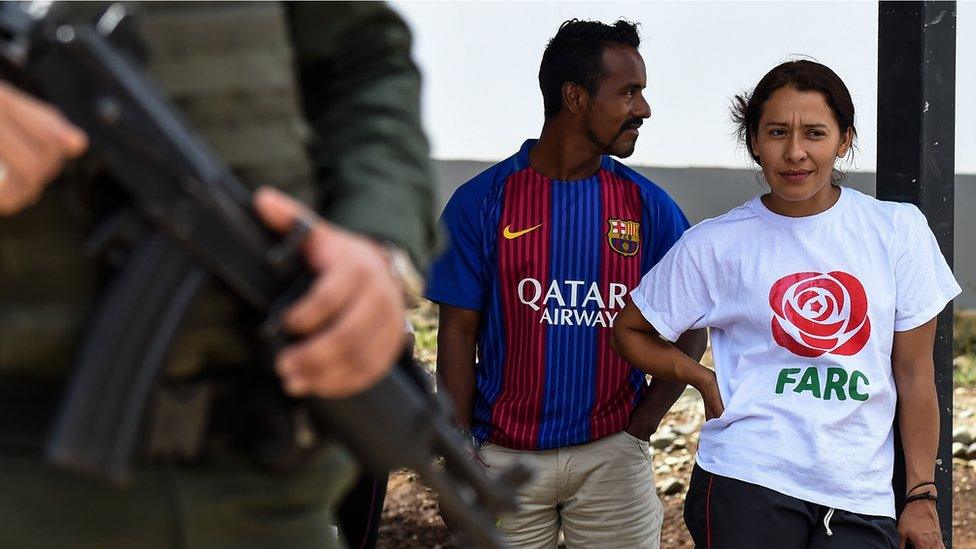
- Published27 February 2018
